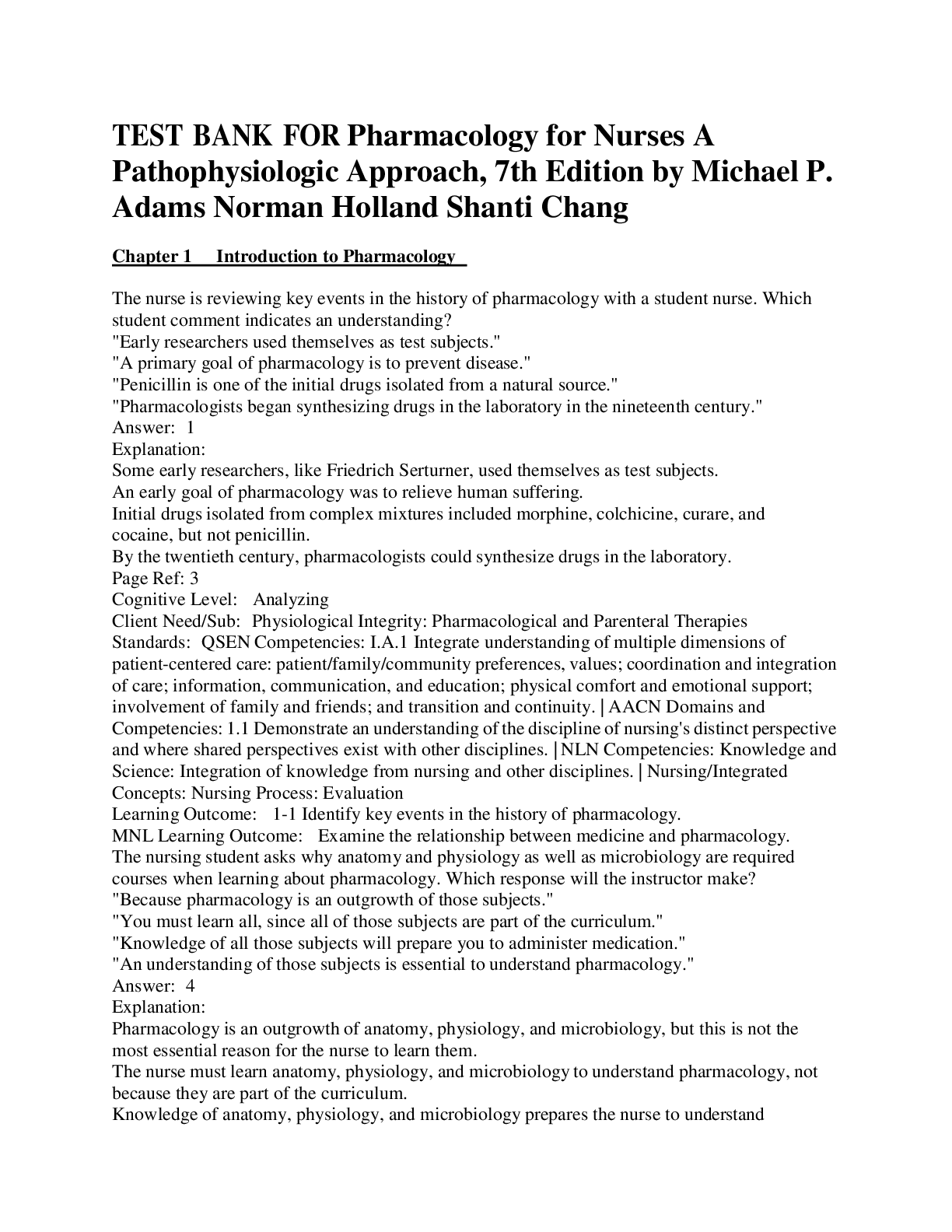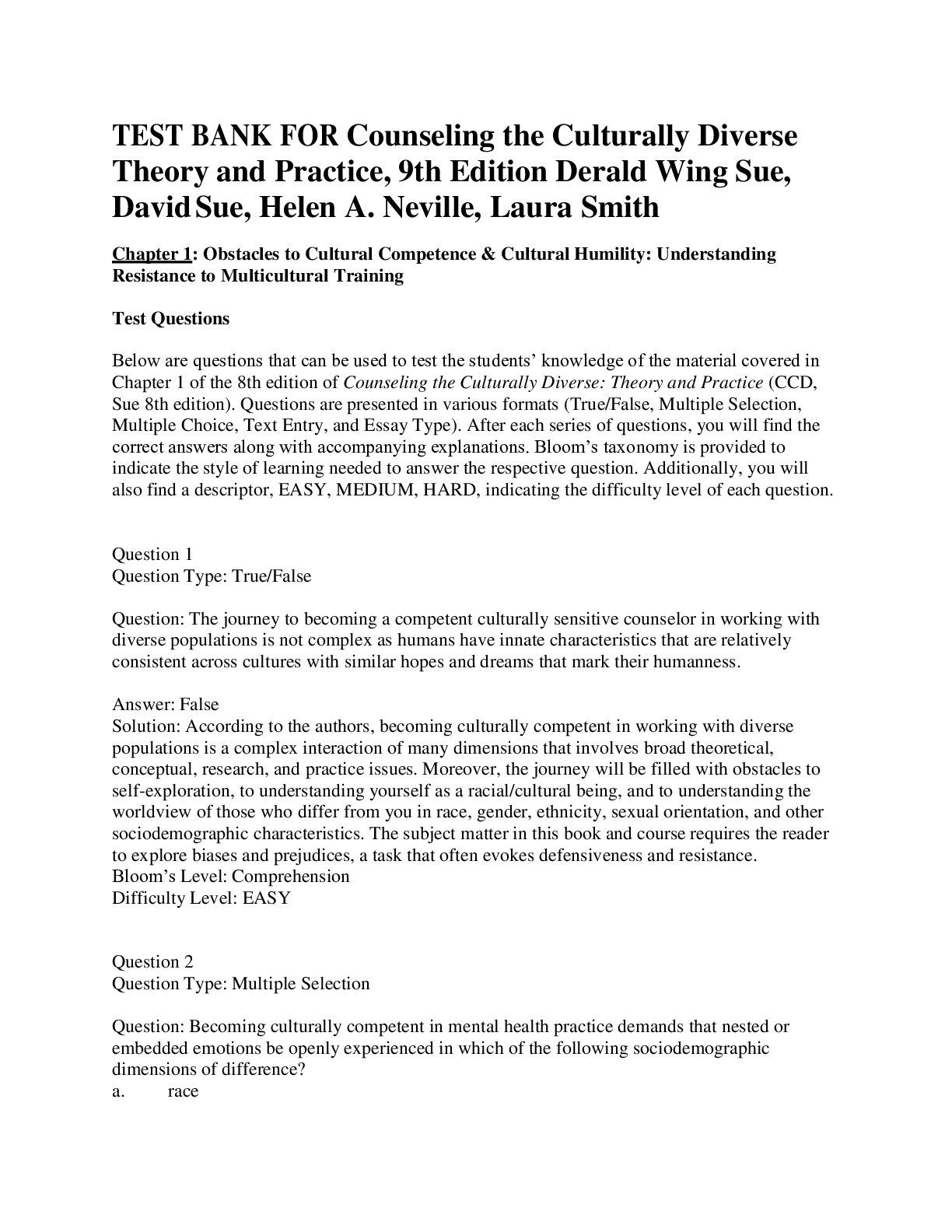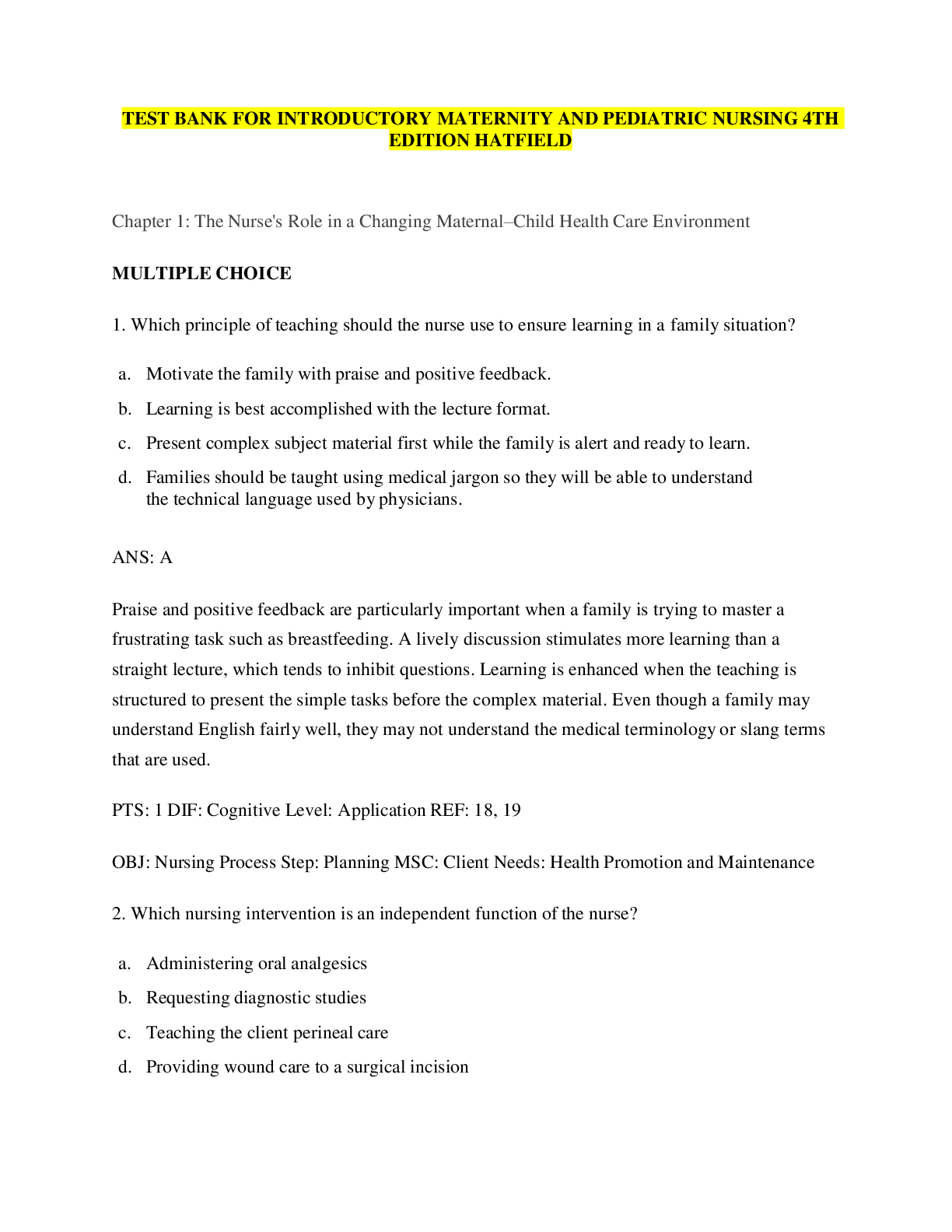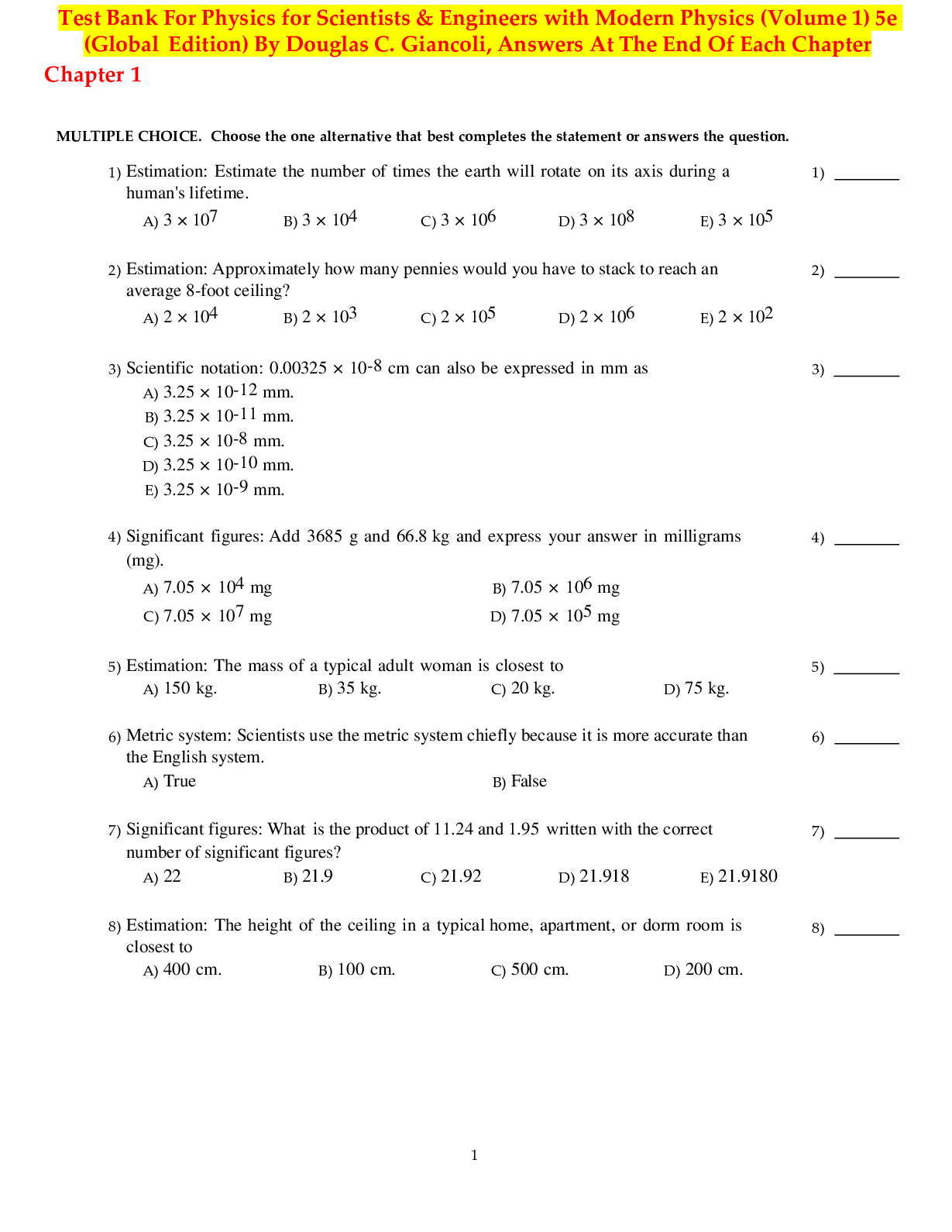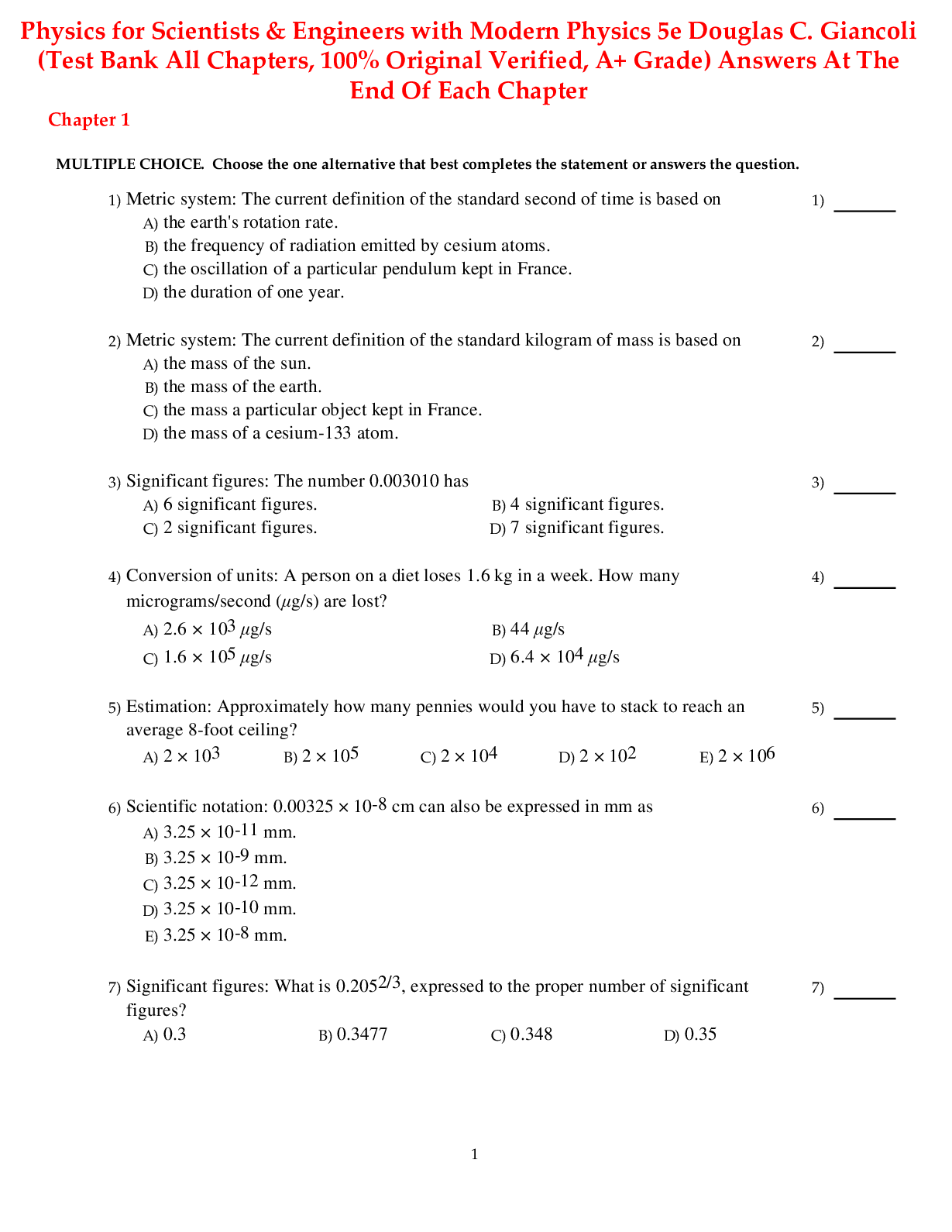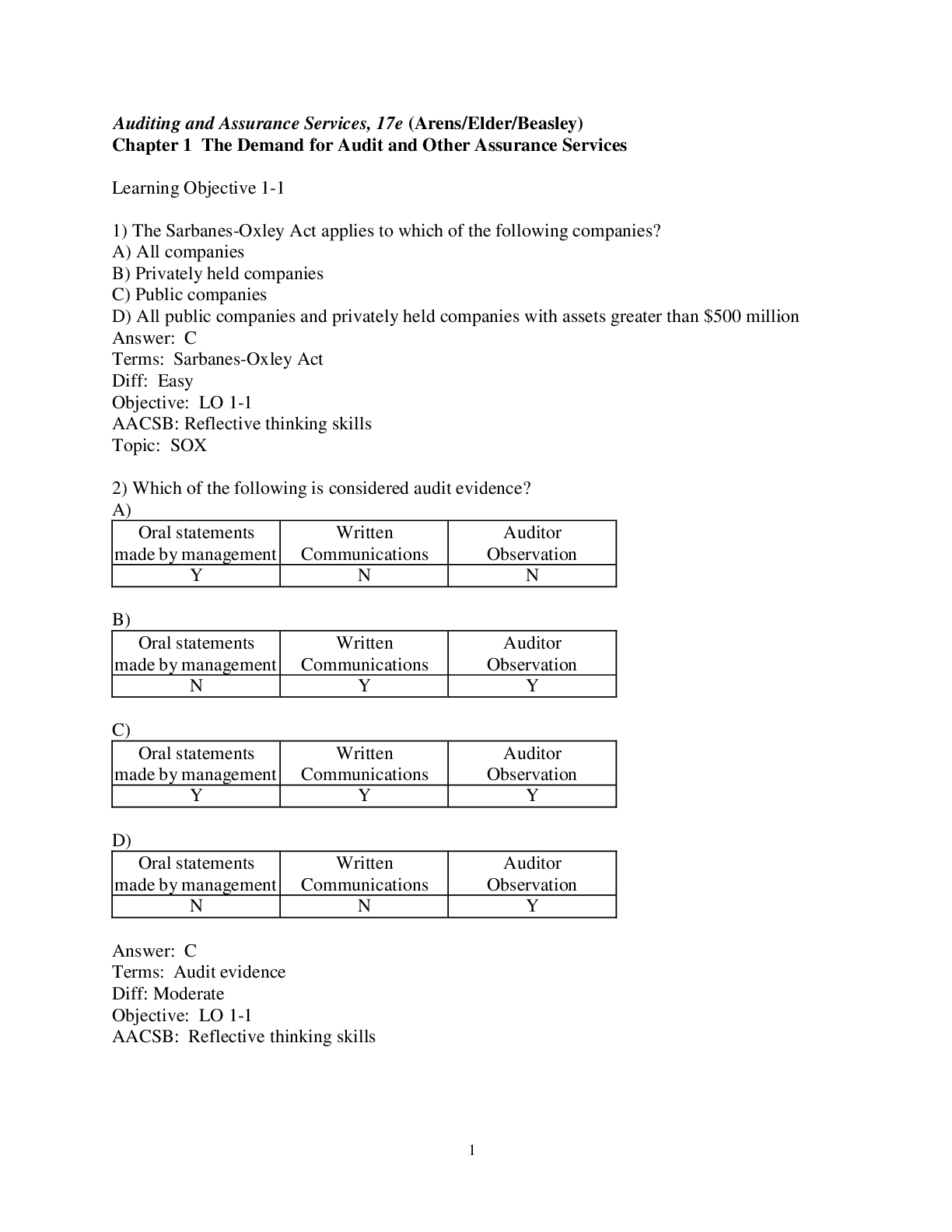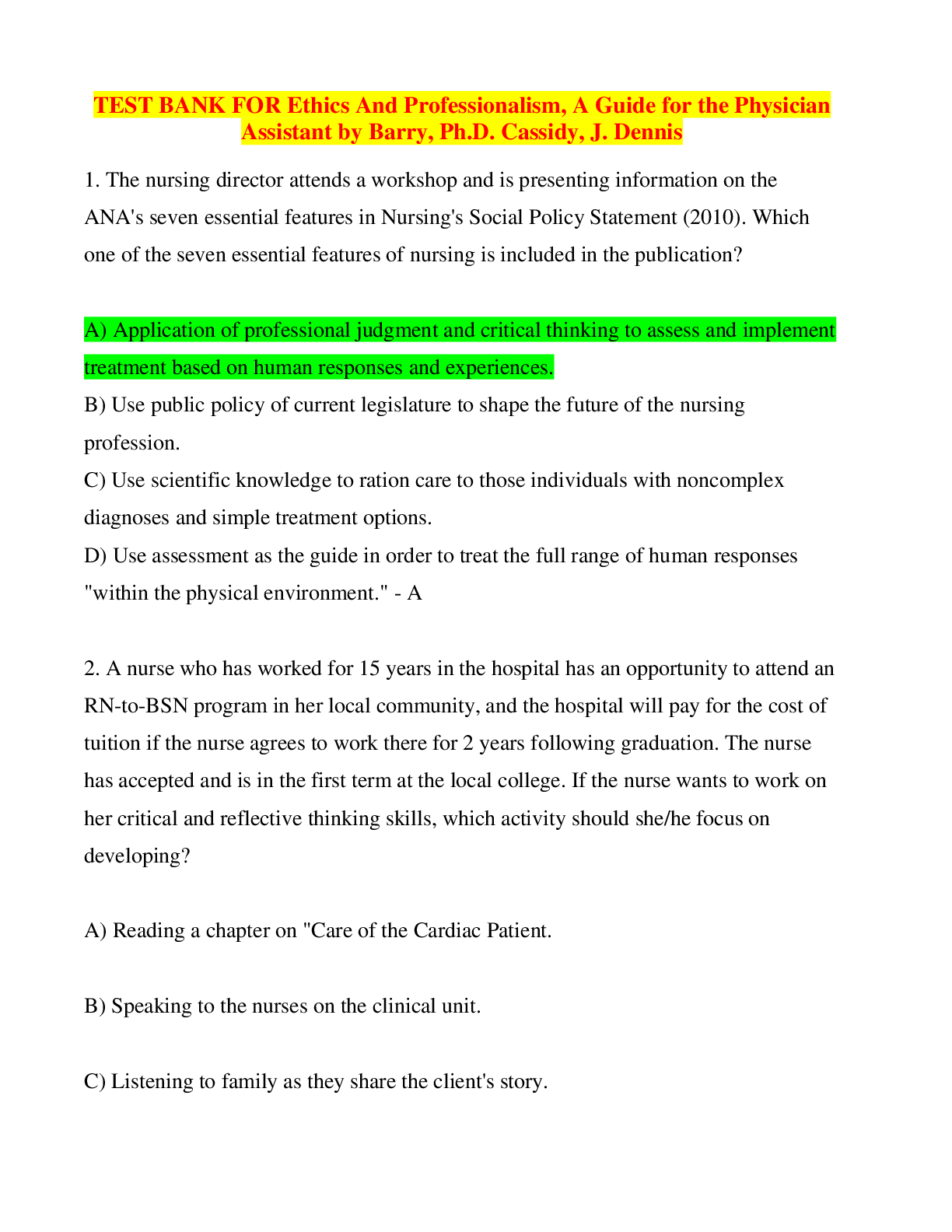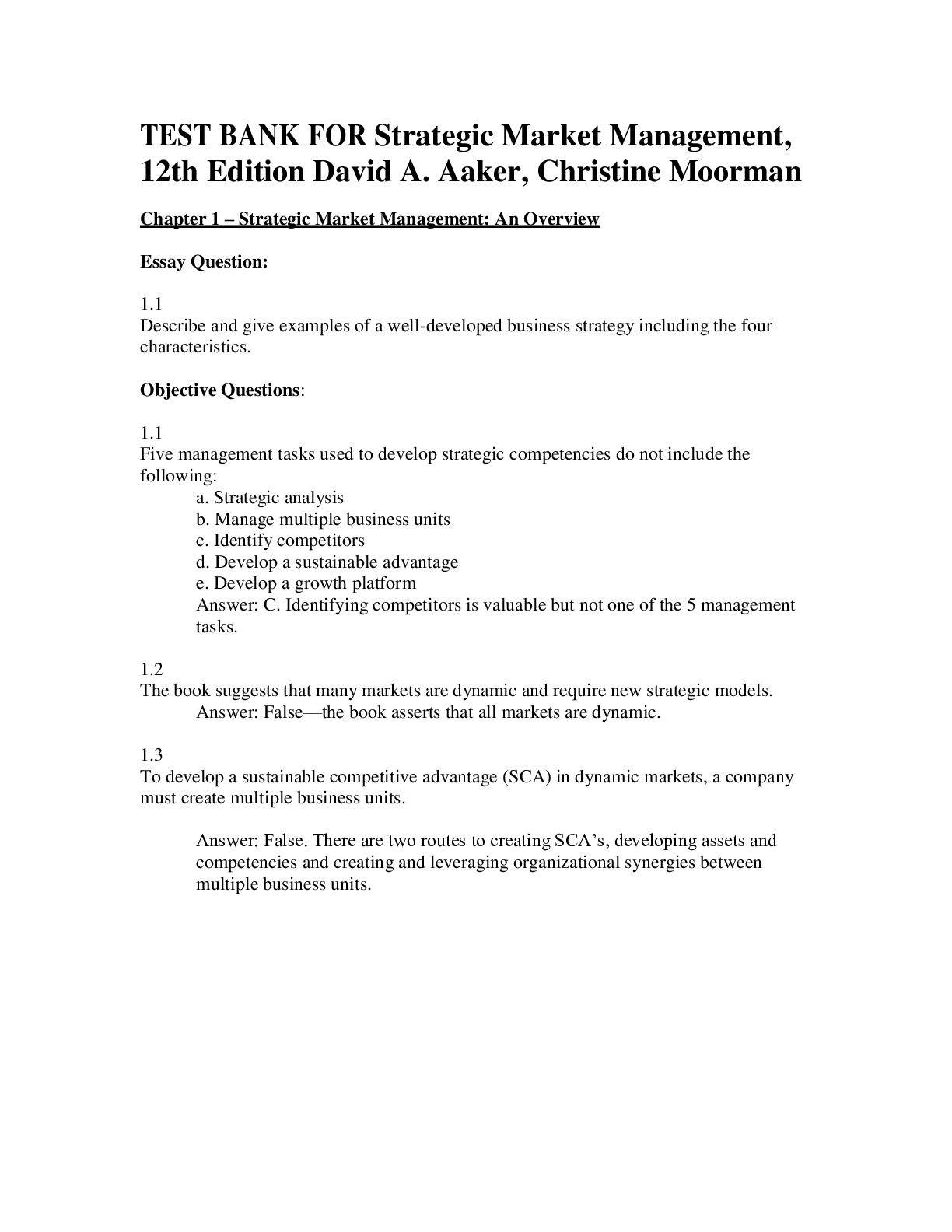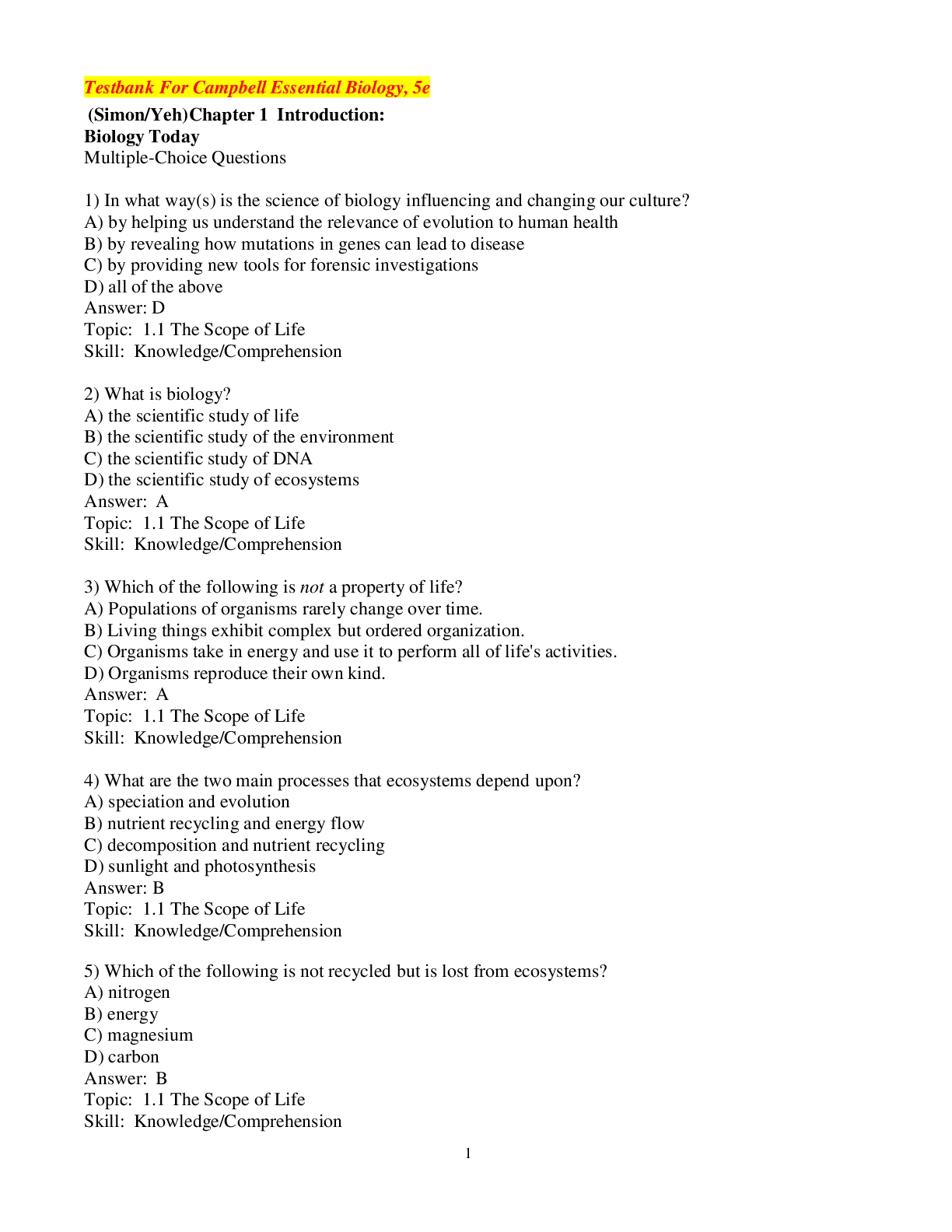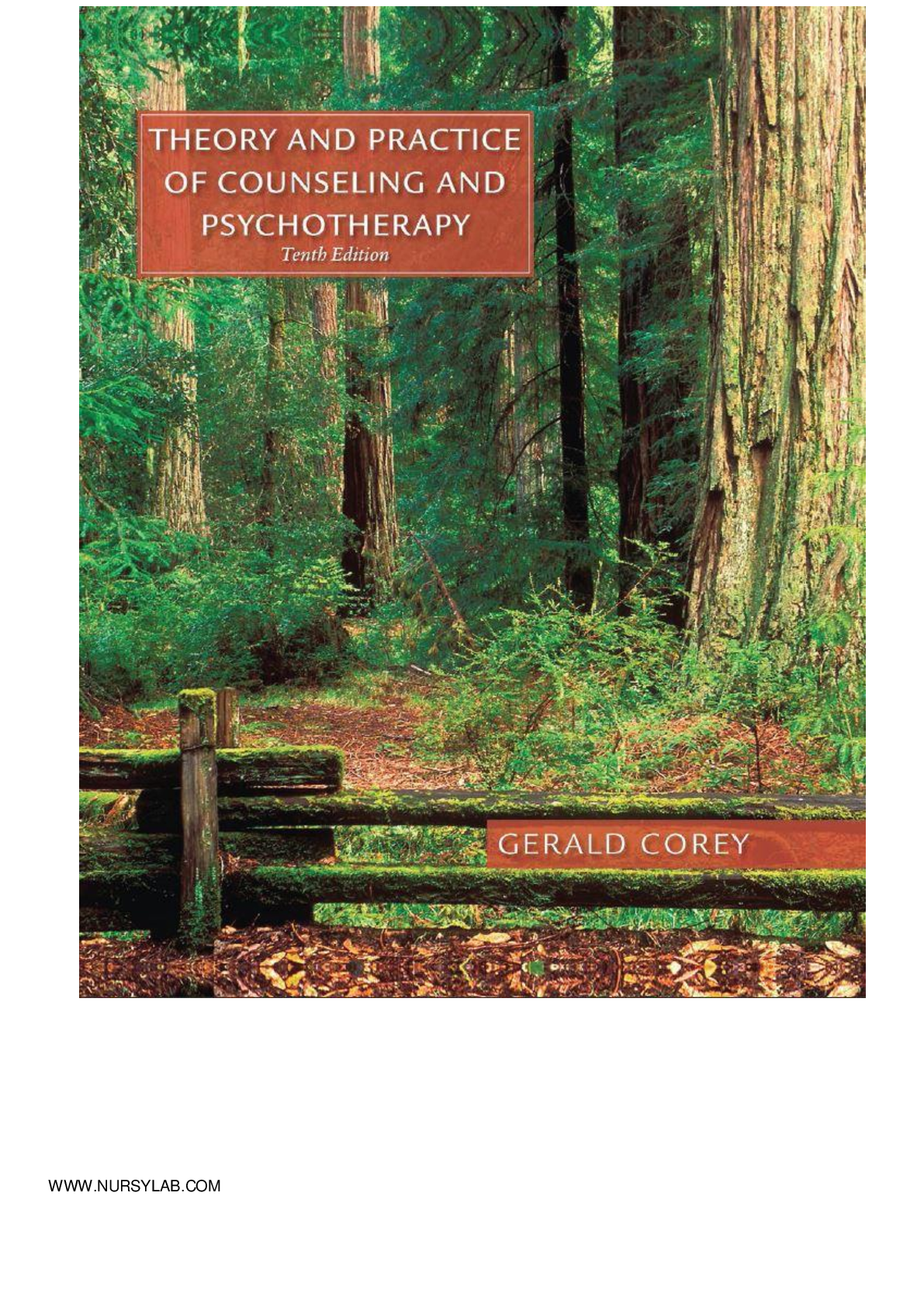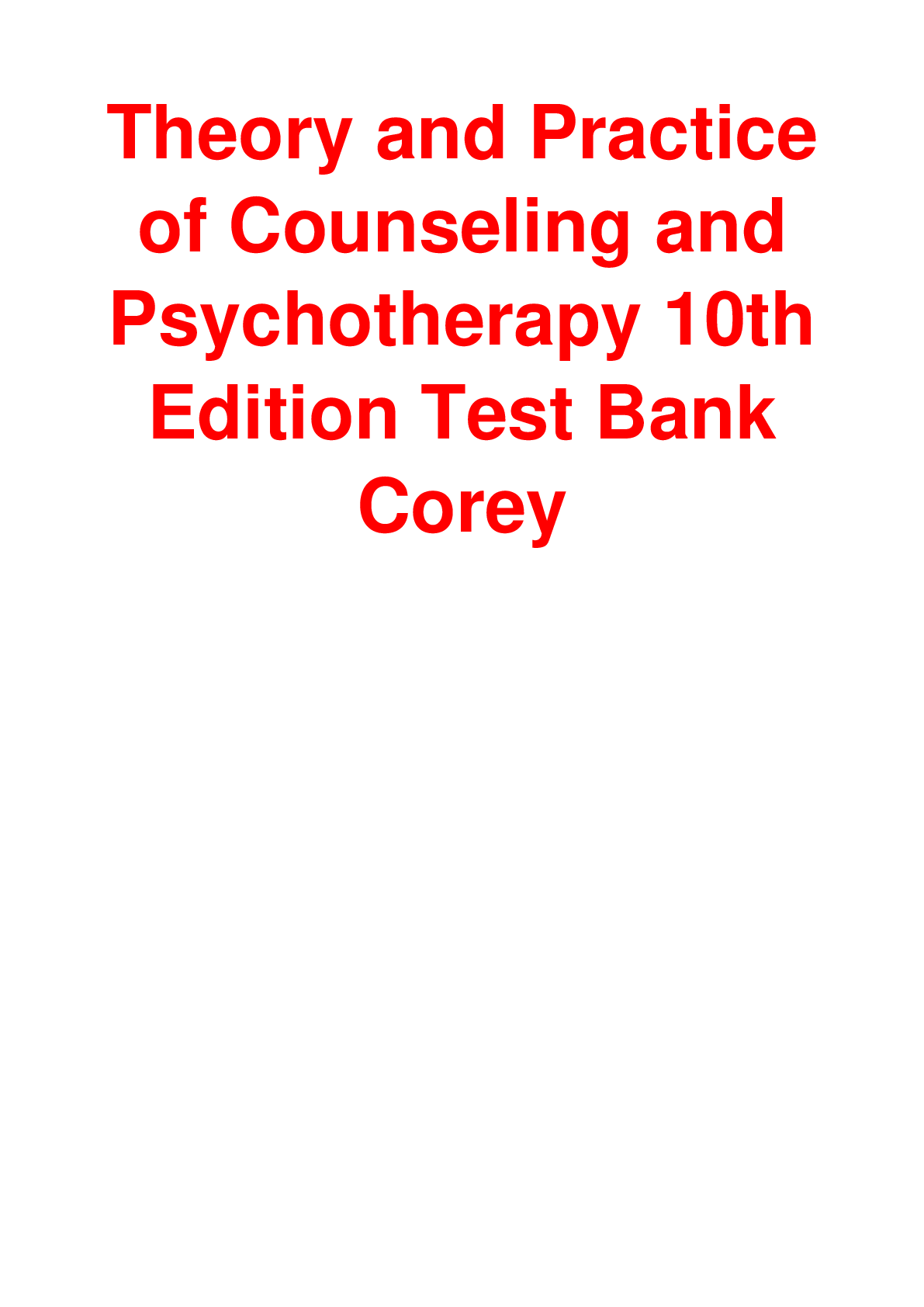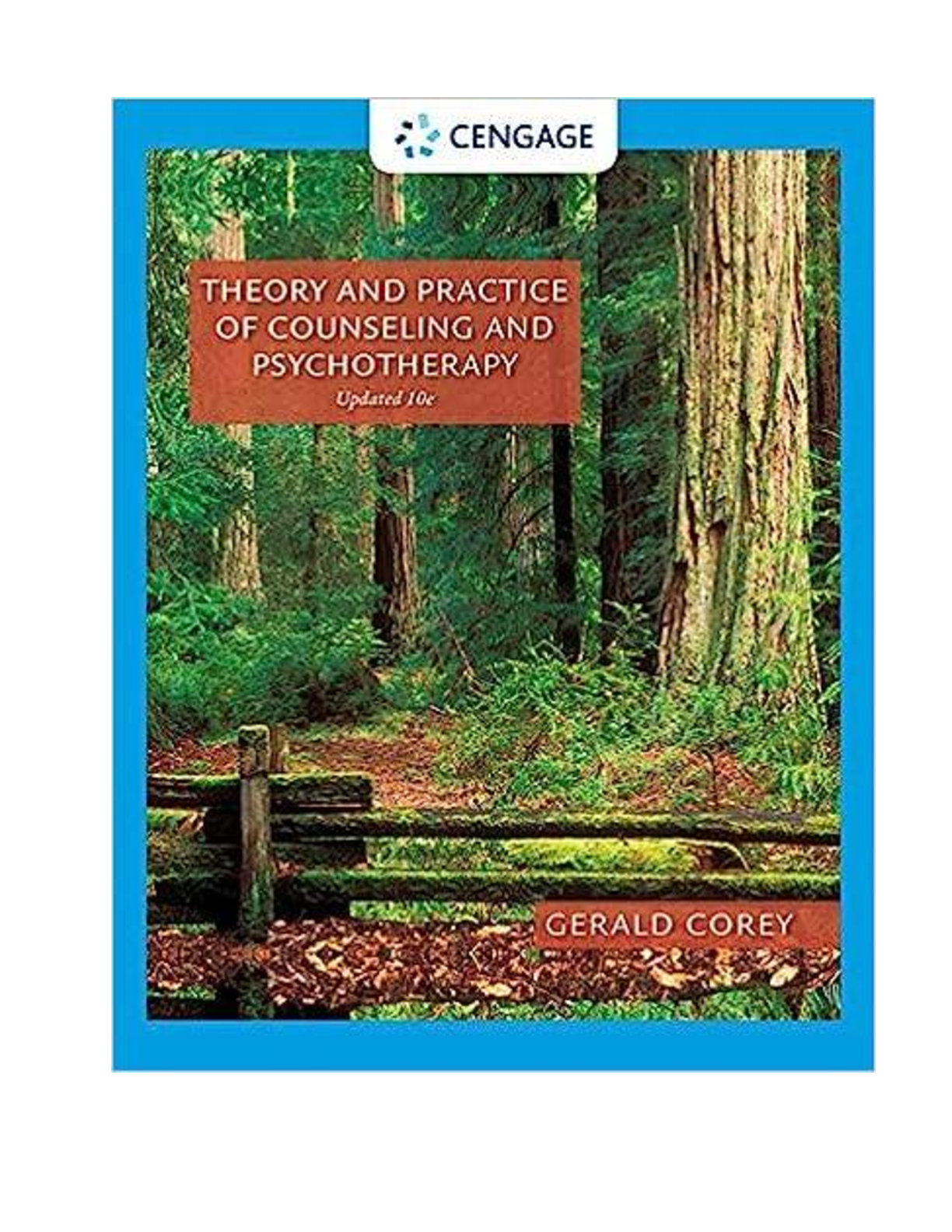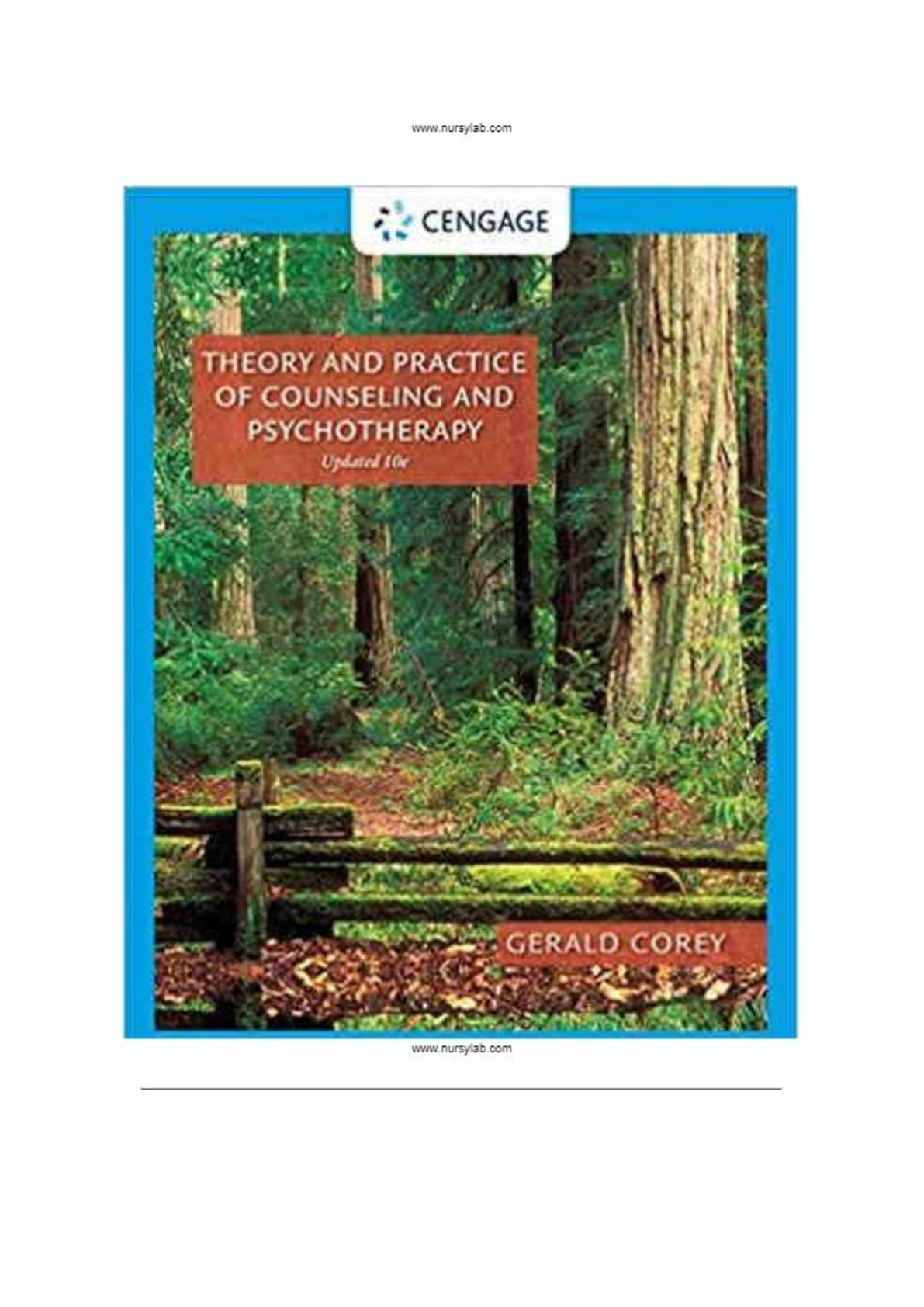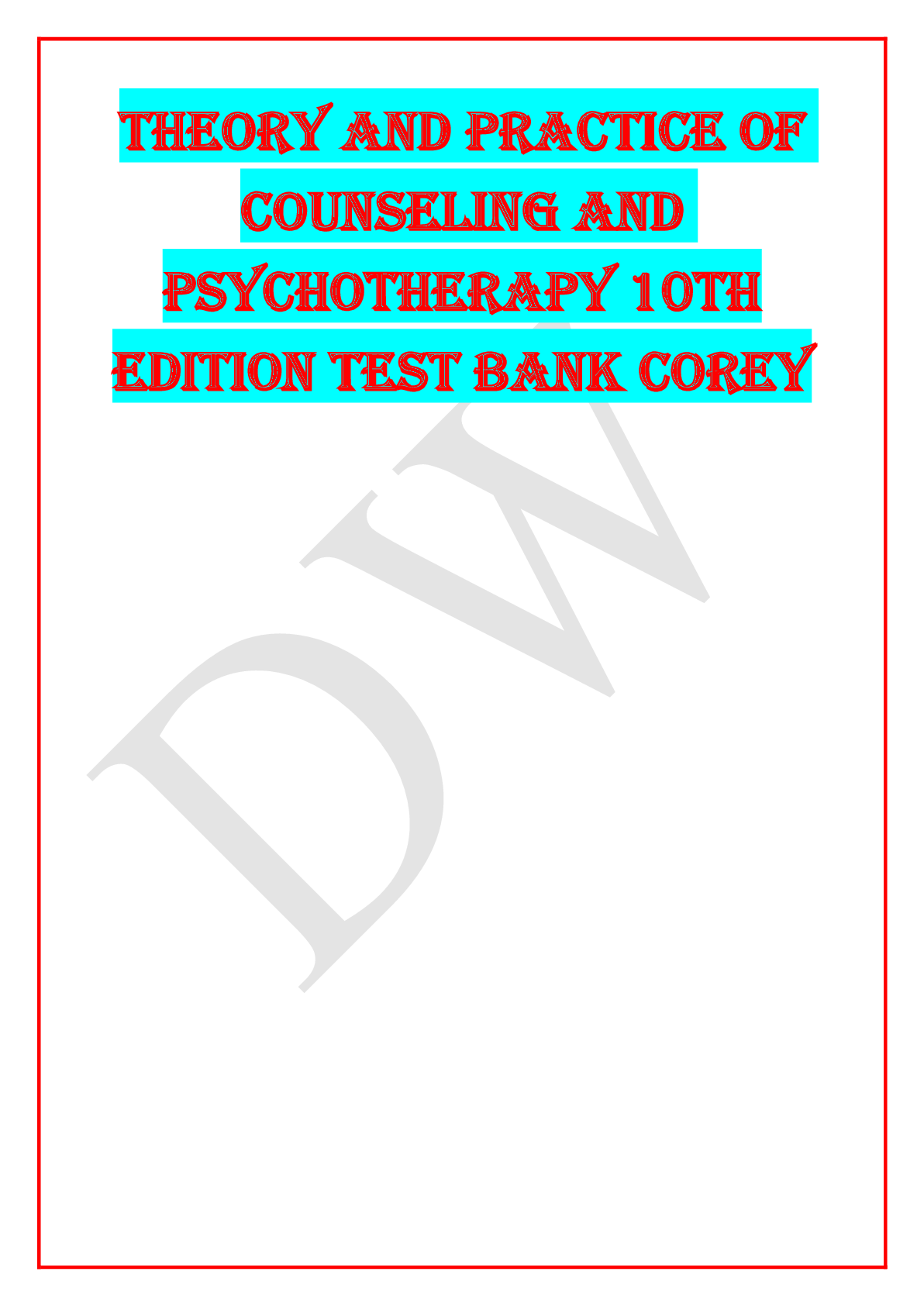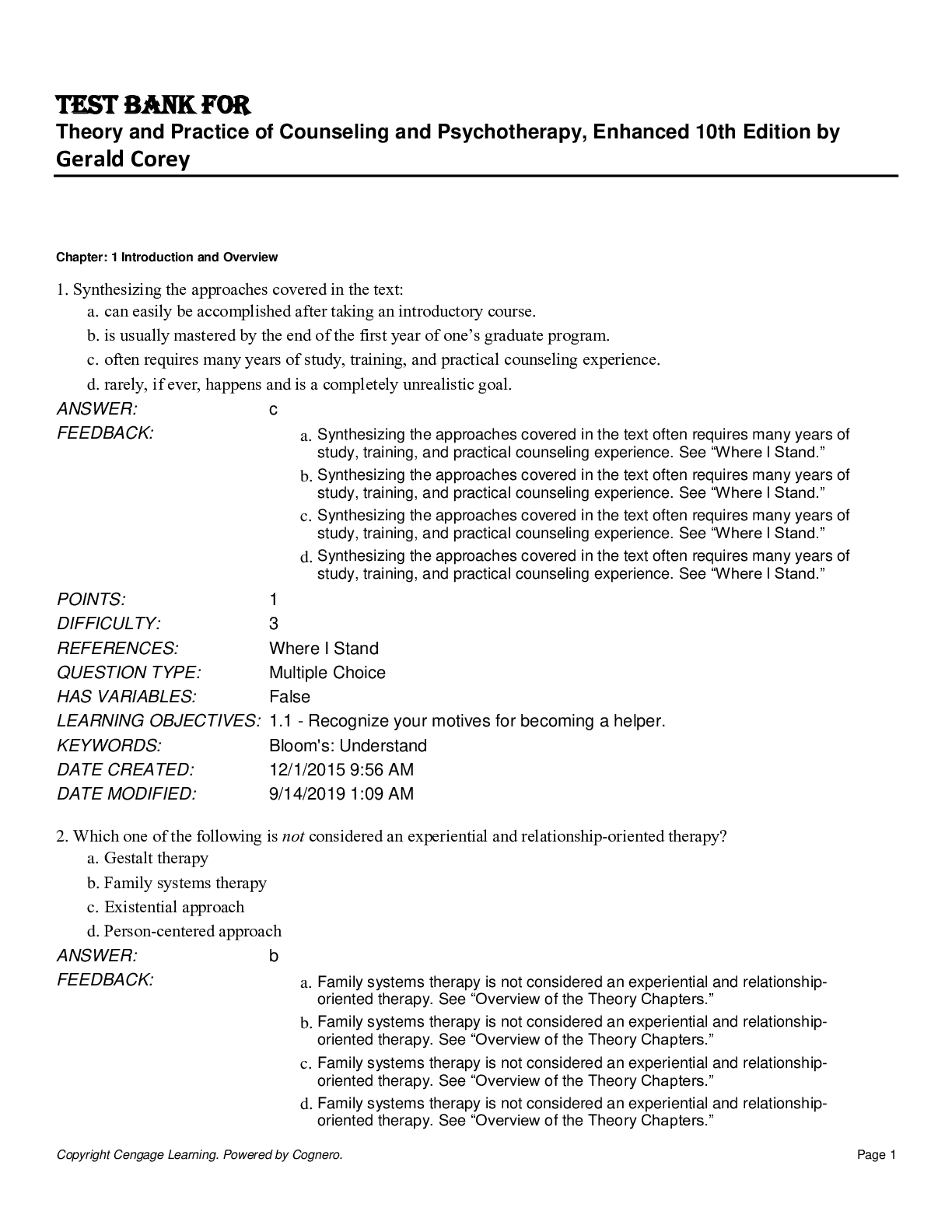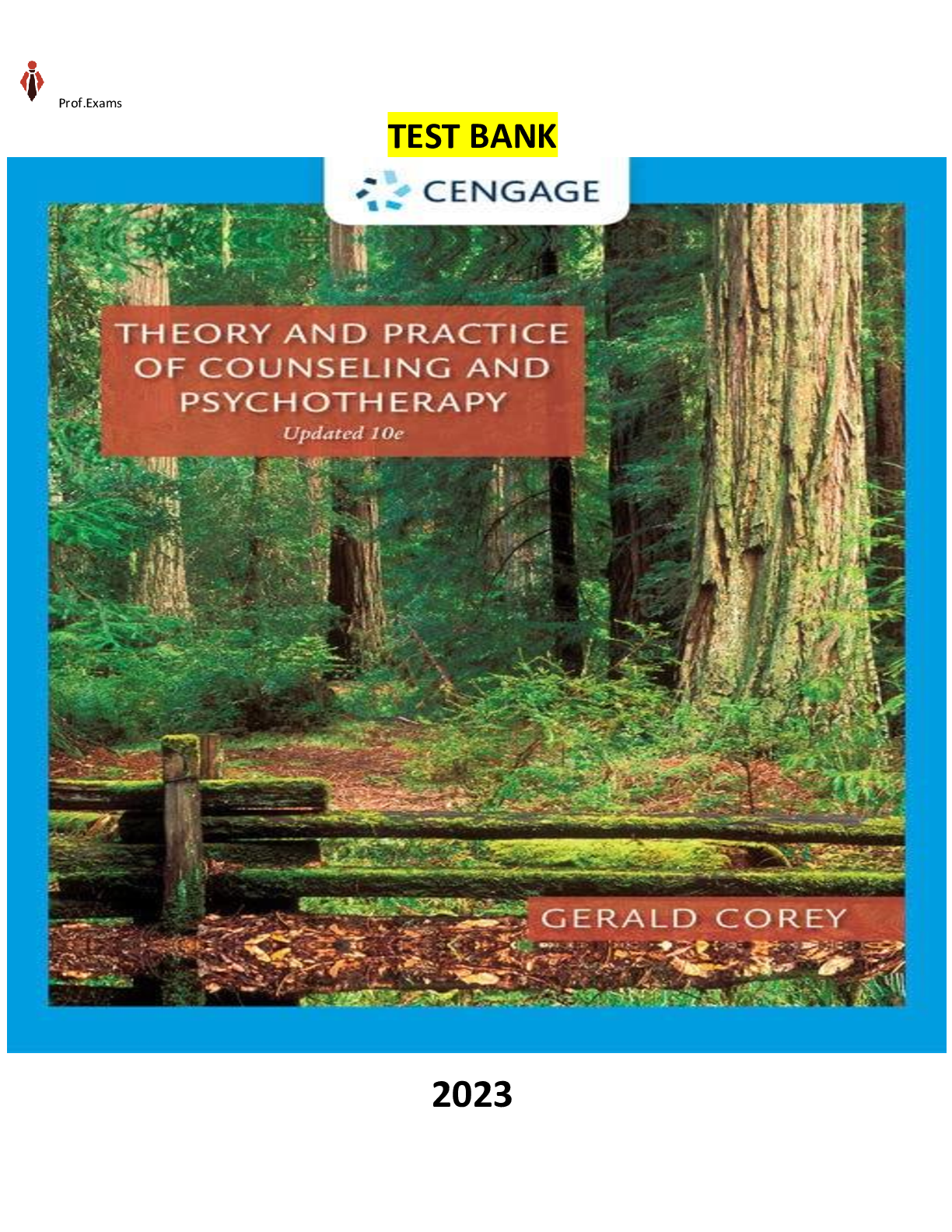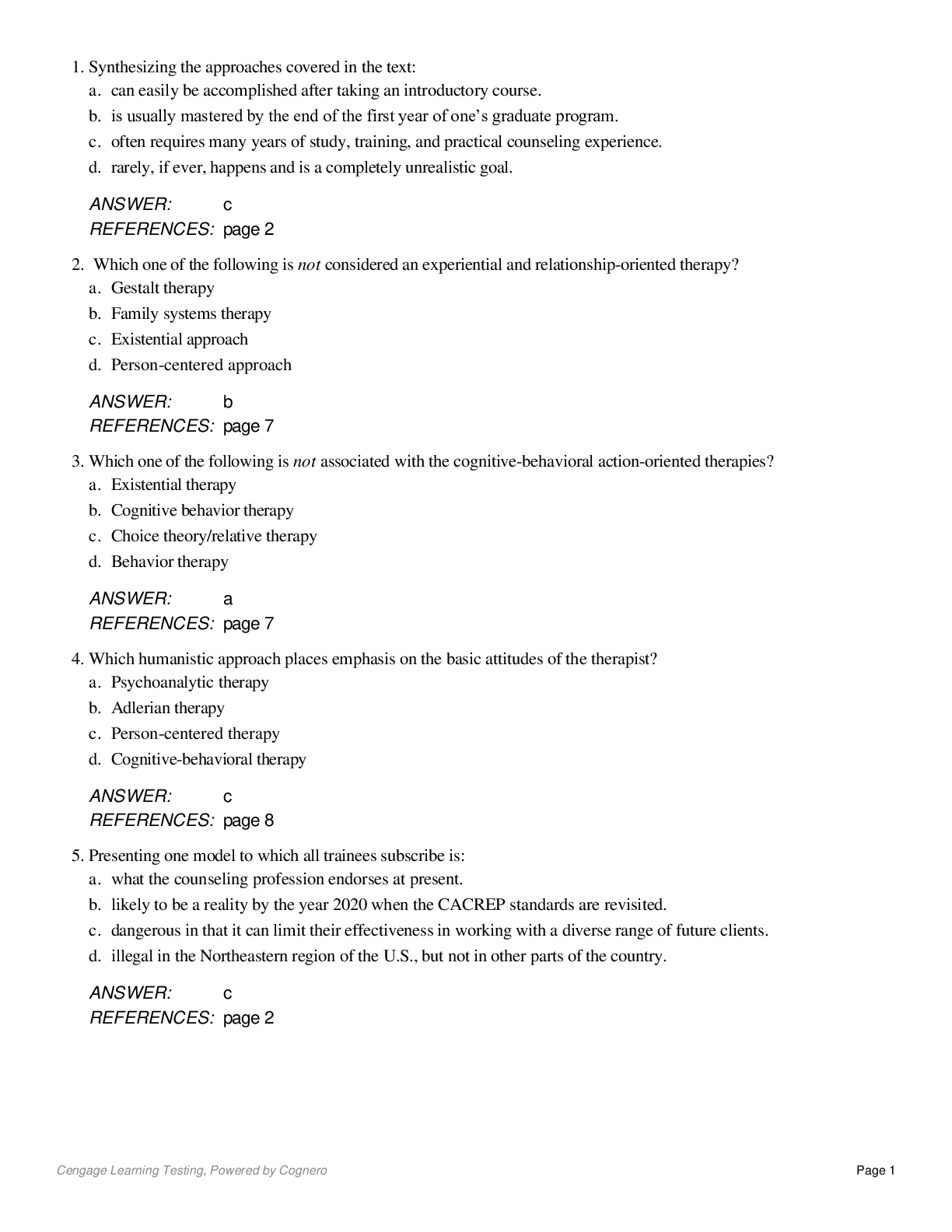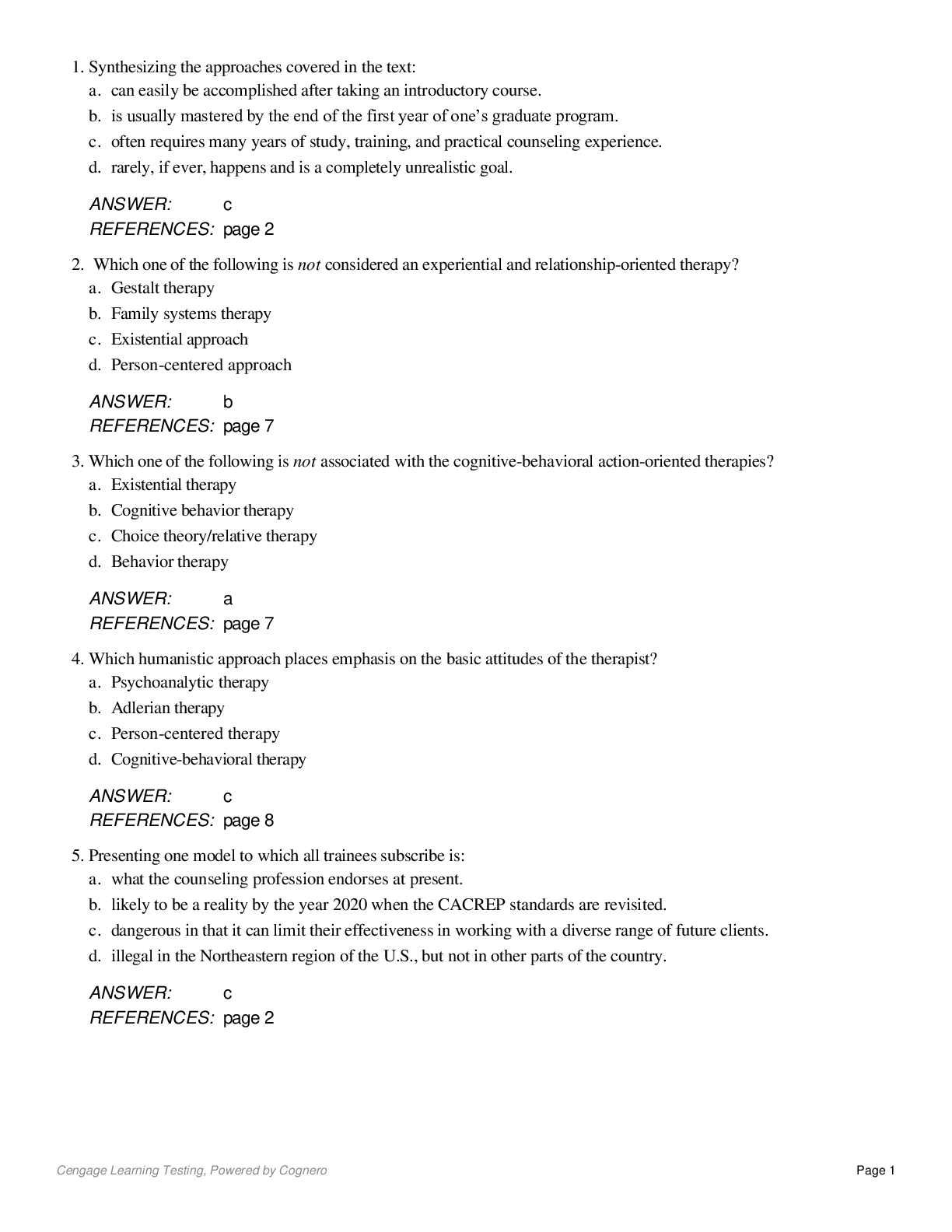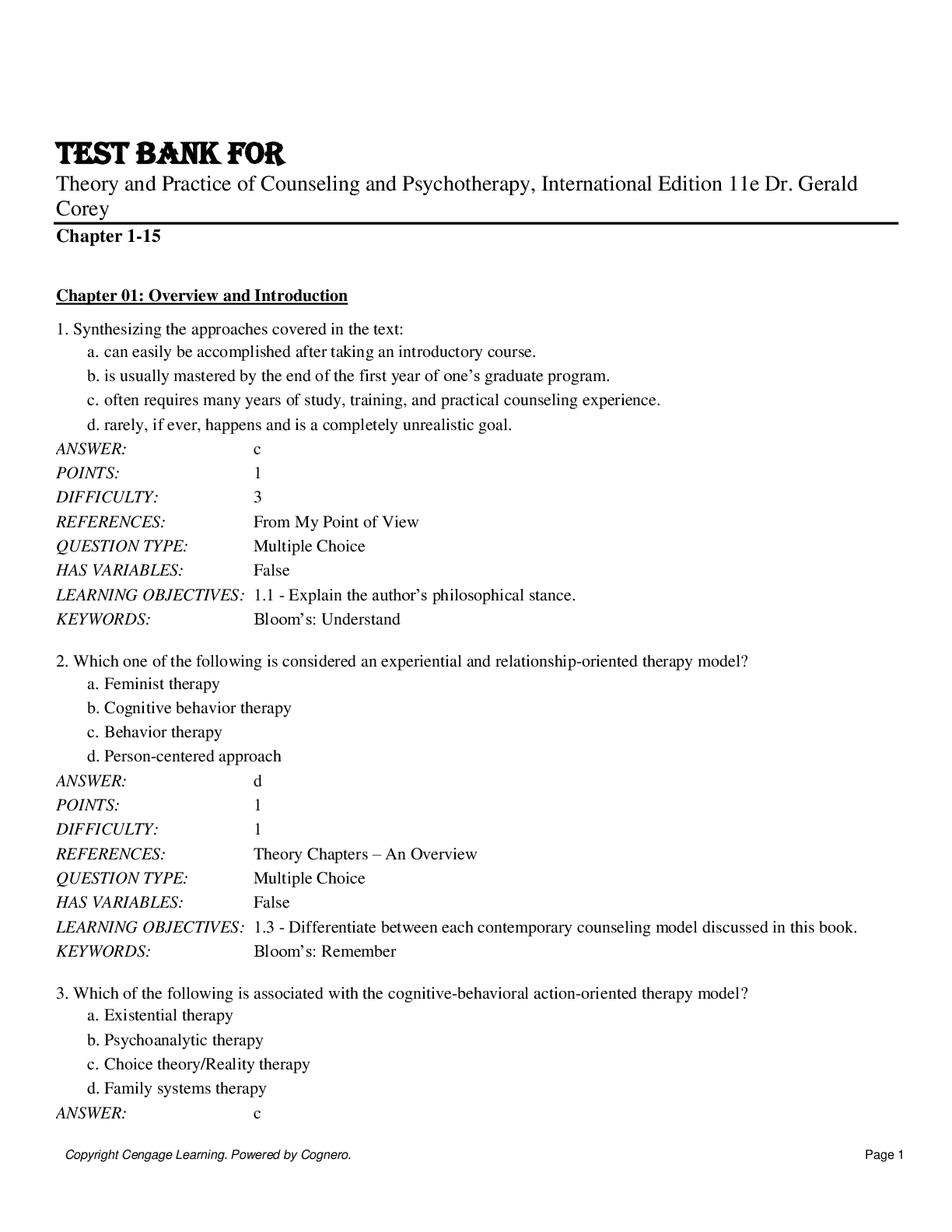*NURSING > TEST BANK > Theory and Practice of Counseling and Psychotherapy Gerald Corey 10th Edition (All)
Theory and Practice of Counseling and Psychotherapy Gerald Corey 10th Edition
Document Content and Description Below
Theory and Practice of Counseling and Psychotherapy Gerald Corey 10th Edition-UNIT ONE: Chapter 1, "Introduction and Overview," pages 2–16. Chapter 2, "The Counselor: Person and Professional," page... s 17–36 Chapter One: • This book surveys 11 approaches to counseling and psychotherapy, presenting the key concepts of each approach and discussing features such as the therapeutic process (including goals), the client-therapist relationship, and specific procedures used in the practice of counseling. • By studying the models presented in this book, you will have a better sense of how to integrate concepts and techniques from different approaches when defining your own personal synthesis and framework for counseling. • Each therapeutic approach has useful dimensions. It is not a matter of a theory being “right” or “wrong,” as every theory offers a unique contribution to understanding human behavior and has unique implications for counseling practice. • More approaches have been developing methods that involve collaboration between therapist and client, making the therapeutic venture a shared responsibility. • Social, environmental, cultural, and biological realities oftentimes limit our freedom of choice. • Feminist therapy has contributed an awareness of how environmental and social conditions contribute to the problems of women and men and how gender-role socialization leads to a lack of gender equality. Family therapy teaches us that it is not possible to understand the individual apart from the context of the system. Both family therapy and feminist therapy are based on the premise that to understand the individual it is essential to take into consideration the interpersonal dimensions and the sociocultural context rather than focusing primarily on the intrapsychic domain. • Psychotherapy is a process of engagement between two people, both of whom are bound to change through the therapeutic venture. At its best, this is a collaborative process that involves both the therapist and the client in co- constructing solutions regarding life's tasks. Most of the theories described in this book emphasize the collaborative nature of the practice of psychotherapy. • Therapists are not in business to change clients, to give them quick advice, or to solve their problems for them. Instead, counselors facilitate healing through a process of genuine dialogue with their clients. The kind of person a therapist is remains the most critical factor affecting the client and promoting change. If practitioners possess wide knowledge, both theoretical and practical, yet lack human qualities of compassion, caring, good faith, honesty, presence, realness, and sensitivity, they are more like technicians. • Administering techniques to clients without regard for the relationship variables is ineffective. Techniques cannot substitute for the hard work it takes to develop a constructive client-therapist relationship. Although you can learn attitudes and skills and acquire certain knowledge about personality dynamics and the therapeutic process, much of effective therapy is the product of artistry. Counseling entails far more than becoming a skilled technician. It implies that you are able to establish and maintain a good working relationship with your clients, that you can draw on your own experiences and reactions, and that you can identify techniques suited to the needs of your clients. • As a counselor, you need to remain open to your own personal development and to address your personal problems. The most powerful ways for you to teach your clients is by the behavior you model and by the ways you connect with them. I suggest you experience a wide variety of techniques yourself as a client. • Psychoanalytic therapy is based largely on insight, unconscious motivation, and reconstruction of the personality. The psychoanalytic model appears first because it has had a major influence on all of the formal systems of psychotherapy. Some of the therapeutic models are extensions of psychoanalysis, others are modifications of analytic concepts and procedures, and still others emerged as a reaction against psychoanalysis. Many theories of psychotherapy have borrowed and integrated principles and techniques from psychoanalytic approaches. • Adlerian therapy differs from psychoanalytic theory in many respects, but it can broadly be considered an analytic perspective. Adlerians focus on meaning, goals, purposeful behavior, conscious action, belonging, and social interest. Although Adlerian theory accounts for present behavior by studying childhood experiences, it does not focus on unconscious dynamics. • experiential and relationship-oriented therapies: the existential approach, the person-centered approach, and Gestalt therapy. The existential approach stresses a concern for what it means to be fully human. It suggests certain themes that are part of the human condition, such as freedom and responsibility, anxiety, guilt, awareness of being finite, creating meaning in the world, and shaping one's future by making active choices. This approach is not a unified school of therapy with a clear theory and a systematic set of techniques. Rather, it is a philosophy of counseling that stresses the divergent methods of understanding the subjective world of the person. o The person-centered approach, which is rooted in a humanistic philosophy, places emphasis on the basic attitudes of the therapist. It maintains that the quality of the client-therapist relationship is the prime determinant of the outcomes of the therapeutic process. Philosophically, this approach assumes that clients have the capacity [Show More]
Last updated: 2 years ago
Preview 1 out of 202 pages
Buy this document to get the full access instantly
Instant Download Access after purchase
Buy NowInstant download
We Accept:

Reviews( 0 )
$14.50
Can't find what you want? Try our AI powered Search
Document information
Connected school, study & course
About the document
Uploaded On
Sep 20, 2021
Number of pages
202
Written in
Additional information
This document has been written for:
Uploaded
Sep 20, 2021
Downloads
0
Views
62

